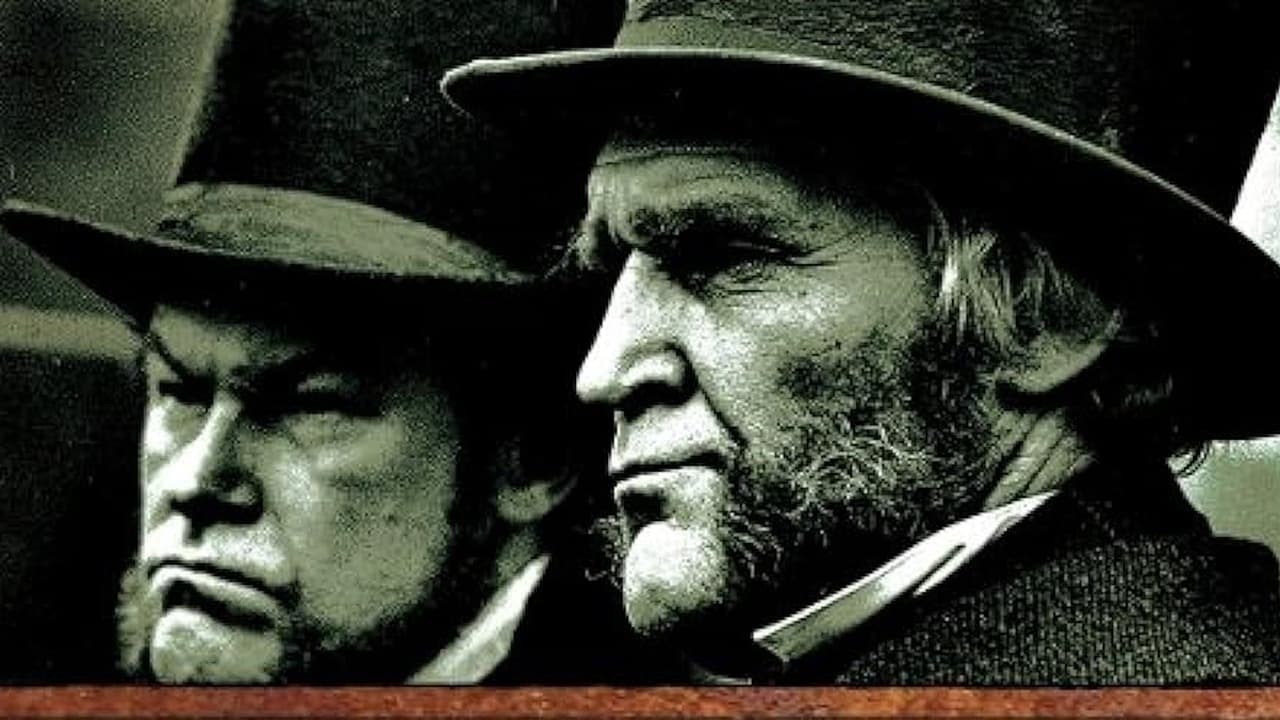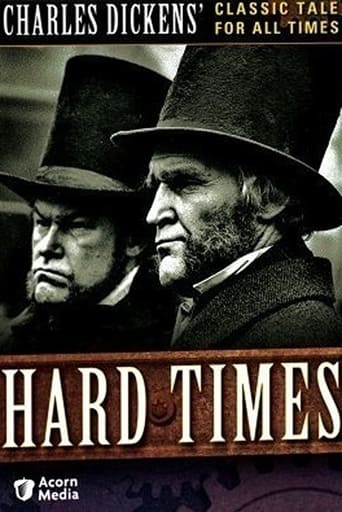



good back-story, and good acting
It's a mild crowd pleaser for people who are exhausted by blockbusters.
View MoreJust intense enough to provide a much-needed diversion, just lightweight enough to make you forget about it soon after it’s over. It’s not exactly “good,” per se, but it does what it sets out to do in terms of putting us on edge, which makes it … successful?
View MoreThere is, somehow, an interesting story here, as well as some good acting. There are also some good scenes
View MoreThe 1994 adaptation was quite good but felt too short and rushed. This adaptation was wonderful and you'd be hard pressed to find a better adaptation or do one better. The costumes and sets are very true to the period and done really convincingly, both opulent, without being too beautiful, and atmospheric, without being too overly-bleak. As an adaptation it really works. The dialogue flows very well and written with sophistication. The social and personal issues of the times are incorporated without being ignored or skimmed over in the writing, as is the fun, tragedy and foreboding of Dickens' style. The story is always compelling and is faithful to Dickens without being too faithful or cold. Excellent performances too, especially from Edward Fox(wonderfully oily), Timothy West(human and villainous) and Patrick Allen(convincing at being gruff and repentant). Though Rosalie Crutchley is a scene-stealer too, Jacqueline Tong is lovely and feisty, Alan Dobie is very moving and Barbara Ewing does nicely playing the only "perfect saint" character). So all the performances work, and does does this adaptation, which is a great adaptation and wonderful on its own. 10/10 Bethany Cox
View MoreLooking at the typical Dickens Novel like "Bleak House" or "David Copperfield" or "Our Mutual Friend", the size is usually about 800 - 900 pages. Only three of his novels escape this gigantism. "A Tale of Two Cities" and "Great Expectations" are about 500 - 600 pages each. But most surprising is "Hard Times For These Times" (better known as "Hard Times") which is about 350 to 400 pages.At the time he wrote "Hard Times" (1854 - 55) Dickens' position as the leading British novelist was pretty secure. "Copperfield" and "Bleak House" had determined that. But he was trying to demonstrate that he was also a great magazine editor. His first magazine was entitled "Household Words", and while publishing it he decided to enhance it's readership by writing a novel. Like all of his novels it was published piecemeal, but hitherto Dickens was the author working with other editors - so he was able to get them to accept his prolonged novels with tons of subplots and episodes. Now he was an editor himself, and he realized that he had to trim off the fat. The result was a four part serialized novel, regarding the industrial revolution in the midlands, and possibly (to his millions of fans) the least Dickens-like novel of them all. The proof of this is that, despite it's brief length being a plus for modern readers turned off by 800 - 900 page novels, more people know Dickens for "Copperfield" or "Pickwick" or "Oliver Twist" than are aware of "Hard Times".As pointed out in some of the other reviews here, Dickens is taking a close and skeptical view of the wonderful industrial revolution. His real hero in the novel is Stephen Blackpool, a hard working laborer in the industrial city of Coketown. Blackpool is overworked and underpaid. He has drunken shrew for a wife. He can't find any type of hope in this God - forsaken city. The so - called Labor Unions are of little use (George Orwell notes in his essay on Dickens that they are little better than a protection racket). In the course of the story we watch the tragedy of Blackpool unfold - and how it is impossible to stop it.The villains of the novel include Thomas Gradgrind, an educator and industrialist who is determined to raise a generation of realists. "Teach these children facts...nothing but facts!!", he rails at the start of the novel, and dooms his son and daughter (among others) into a bleak, colorless, joyless existence. He does get his daughter Louisa married to Josiah Bounderby (the second villain), an ironmonger and "self-made man", who won't hear of coddling the workers (the Stephen Blackpools, if you will) of the world - he keeps using a ridiculous metaphor of the workers wanting to drink turtle soup out of silver tureens. Louisa is soon bored by this man, and falls for the blandishments of Mr. James Harthouse, a Member of Parliament and the third villain in the novel. Will she give in to the advances of this cad, or will she be saved by her maid (and friend) Sissy Jupe? The B.B.C. series did pretty well in delineating Dicken's attack on inhuman education and inhuman economics, with a fine cast led by Timothy West as Bounderby, Edward Fox as Harthouse, Jacqueline Tong (Daisy on UPSTAIRS/DOWNSTAIRS) as Louisa, and Rosalie Crutchley as Mrs. Sparskit, Bounderby's housekeeper (who was once an aristocrat - her husband was a Powler we are reminded several times) and who has a secret yen for Josiah.I do have one regret - and if you want to read the novel first do not go beyond this point below: SUPER SPOILER COMING UP: In the novel, Mrs. Sparskit is jealous of Louisa marrying Josiah, and when Louisa has her affair with Harthouse she spies on her. Her intention is to eventually reveal all to Bounderby, who will divorce Louisa and (hopefully) marry Mrs. Sparskit. But while noting Louisa's trysts with Harthouse, Mrs.Sparskit also notes a mysterious elderly woman who is constantly coming to see Josiah. After awhile, she is annoyed at not knowing who this is, and Bounderby's reticence about the matter. Finally, at the conclusion of the novel, she does meet the lady (much to Bounderby's discomfort). It is his mother. Now Bounderby talks with a lower class accent throughout the novel, and Mrs. Sparskit's amorous interest in him is based on the idea that he's low born and wealthy, and she is poor but aristocratic - they are meant for each other because she can raise him properly to his social sphere. Now she finds out that Mrs. Bounderby is not lowly at all - Josiah came from the upper class (just as Mrs. Sparskit did). He just pretended he was self-made for effect in dealing with others. Mrs. Sparskit's scorn for Josiah at the conclusion of the novel was very funny. Unfortunately it was not included in this version of the novel.
View MoreAt nearly four hours, this version of 'Hard Times', made by Granada TV, scores highly, moving along at a much slower pace than, say, the 1980s version made for children's television.The novel by Charles Dickens is not one of his best known; however, in the tale of the mills of Coketown, the pompous self-made mill-owner Bounderby, and the miserable Gradgrind children, worn down by their father's insistence that facts are the only things one needs in life, he portrays an interesting set of characters that lend themselves well to film adaptation.As Gradgrind and Bounderby, Patrick Allen and Timothy West are both excellent. Jacqueline Tong is a feisty Louisa, who handles most of her scenes well, while Edward Fox is an oily Harthouse. Alan Dobie completes the main players as mill-hand Stephen Blackpool, a man confined and crushed by fate.Long unavailable on home video, this adaptation deserves to be seen by a new generation and it is a pity that Dickens' collections on DVD have generally included the later version which is much shorter and has much less depth.
View MoreUnlike Charles Dickens's better known works like David Copperfield, Great Expectations and Oliver Twist which mainly deal with social ills such as poverty and / or the hardships faced by orphans or children displaced from their parents, Hard Times deals with the effects of upper middle class affluence, force-fed "Facts" based education and authoritarian - almost dictatorial- parenting on the development of children. Mr. Gradgrind's misplaced but well meaning and relentless "education" of his children ultimately yield tragic consequences. Repeated readings of this book have convinced me that this is Dickens's indictment of the loss of human values and the growing emphasis on material interests and accumulation of scientific knowledge (the "Facts" that Mr. Gradgrind places so much emphasis on) which were ushered in by the Industrial Revolution. Gone is the bloom, the blush and the romance of 'The Arts' as the cold, grey, grimy new self-conscious affluence is ushered in. This aspect of the book is extremely well captured by the screenplay and cinematography. Great moving performances by everyone involved in this production - especially from Edward Fox (a long time favourite actor of mine) who plays the slick, opportunistic Mr. Harthouse, a symbol of the times. Rosalie Crutchley turns in another stellar performance. It is a shame that neither the book nor this production have received the attention so richly deserved.
View More